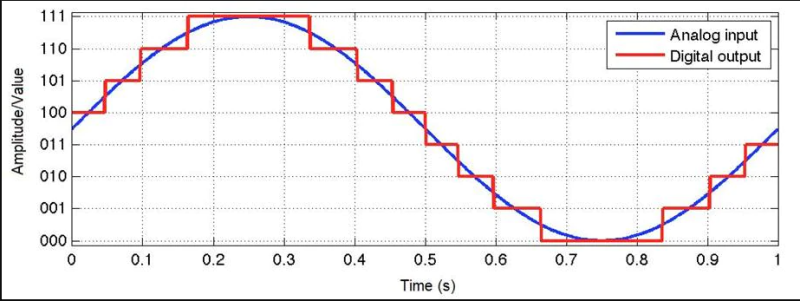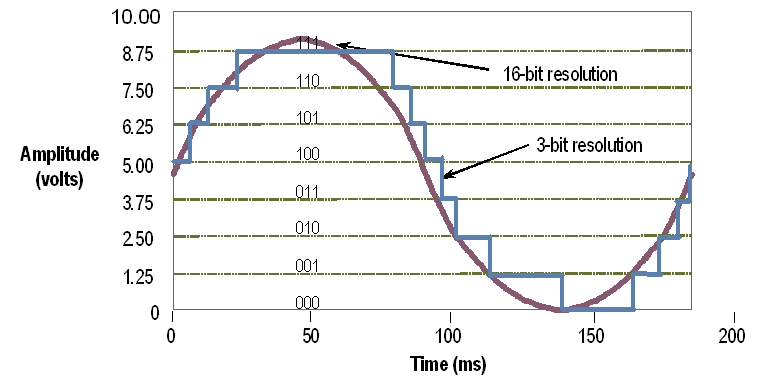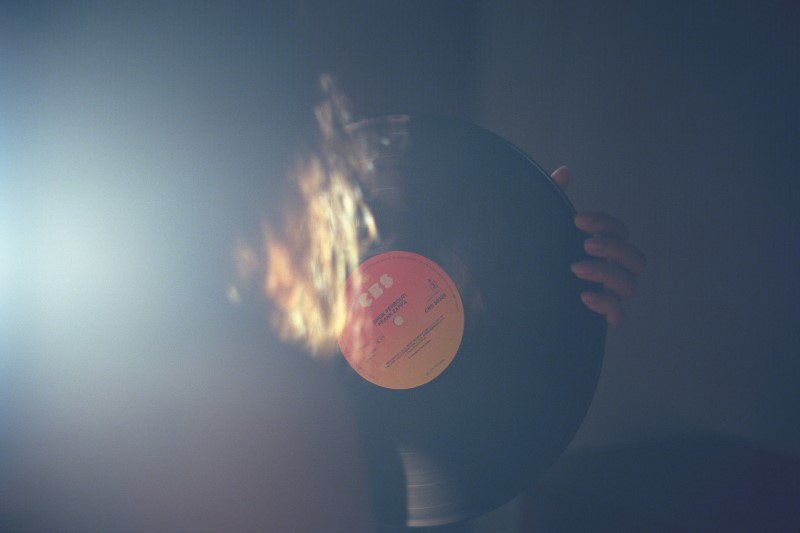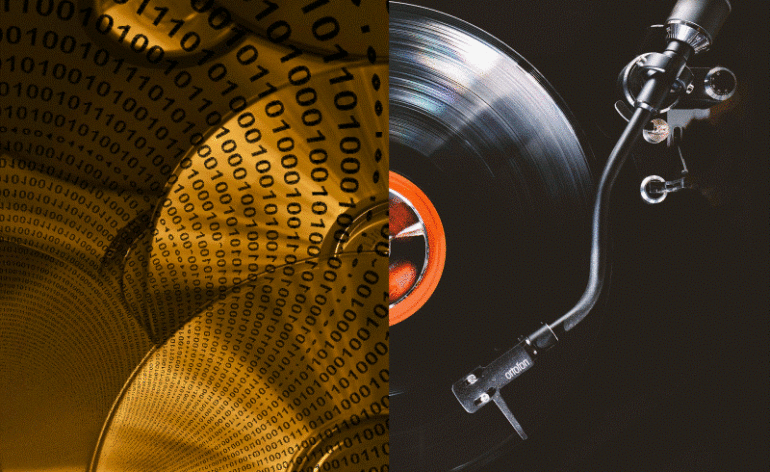Editorial: Analogue Versus Digital – Which is Best?
It’s the age-old question CD or vinyl. Which is better, digital or analogue audio. Well, I’m here with the answer. It’s digital. End of story. No question.
Oh, you want evidence to back up my belief? Honestly, if you spend any time researching digital and analogue audio, you’d agree with me. So, instead of throwing a bunch of numbers at you (which you’ll handwave away anyhow), let’s keep it simple. Let’s take some of the common arguments and show just how wrong they are.
They Sound Different
“I can hear the difference! Isn’t that enough?”
Absolutely not. Your ears and experience are not enough to convince me, nor should they be enough to convince anyone else. There are a thousand reasons why you may believe that one version would be superior to another. Let’s go through a couple:
- Different speakers/room/setting
- Different “frame of mind”
- Associated memories taint audio experience
- They are actually different
That last one is the biggest culprit that no audiophile will ever consider. Often, the reason the analogue version of an album or track sounds different than the digital is because the digital was remastered. It sounds different because it IS different. But that doesn’t make it better or worse. Just different. If anything, the digital version has the ability to sound better. Any noise or issues with the original recording can be fixed in the digital domain in a way that could have never happened in the analogue.
Author’s Note: Think I’m wrong? You aren’t the only one. My favorite test of analogue versus digital audio was by the Boston Audio Society. They took a vinyl recording and pumped it through a box that switched between straight analogue, and an ADC/DAC process to digitize and undigitize it. They had an outspoken detractor of digital try to pick the analogue versus the digitized version. They could do no better than chance.
Analogue Has Higher Resolution
This argument sounds good until you look at it more closely. It goes like this: Analogue signals have infinite data points. They are a wave. Digital signals are only ones and zeroes. So when you try to replicate an analogue wave with only ones and zeroes, you end up with something like this:

Oof. That looks rough. Clearly, the digital signal is much choppier. It may generally follow the analogue line, but that can’t sound the same? Can it? Well, what they aren’t telling you is how digital recordings actually work. They aren’t taking just a few data points. They are taking thousands every second. When you actually graph that, it looks a lot more like the red line below:

At 16-bit, 44.1kHz, the digital line neatly overlaps the analogue one. The 3-bit is closer to what they want you to believe is happening. But it just isn’t true.
But you know this – we all do. Our TVs are full of square pixels but no one says that they can’t recreate a curved line. Of course they can. If you put your nose on the screen, you may be able to see the pixels, but at a normal viewing distance, the curved line looks curved. The curved “line” of audio sounds curved because it is always at the correct “distance” from your ear. You can’t hear the difference because there functionally isn’t one.
Analogue Sounds “Warmer”
We hear this a lot. Analogue naturally, by nature of the medium (usually vinyl though there are some reel-to-reel aficionados out there) sound different. They describe this as sounding “warmer.” I’d describe them as sounding “worse.”
Any sound that is endemic to a medium is not a good thing. In any other instance, we’d call that distortion. Distortion is anything that somehow modifies or changes the sound. If vinyl has a “warm” sound, you might as well say you like your music distorted.
And if you do, that’s okay. I don’t mind that you like vinyl. Just don’t try to convince the rest of the world that the distortion inherent to vinyl makes music better. You may prefer it but some people prefer cars with 300 subwoofers that you can hear five blocks away. Doesn’t make it better.

Digital is “Soulless”
I was just going to type, “See Above,” but I think a little explanation is in order. You can find lots of people deriding CDs or other digital formats as being somehow less engaging than analogue sources. Part of these claims come from people preferring the distortion of analogue vinyl over the pristine digital copy. All that vinyl hiss and noise floor are gone in the digital version. Somehow this makes it worse? I honestly don’t get it.
Digital has Jitter, Compression, etc.
When digital first hit the scene, like any new technology there were some problems. There were issues with timing (called jitter), compression was (and often still is) overused by studios and end-users (dynamic range and filesize respectively), and others. Most of the issues from the encoding side have been resolved. Others remain mostly because people prefer them (dynamic range compression is still common because louder is often perceived as better).
The reality is that there are issues on both ends. Getting bass on and off vinyl is difficult. If you make the grooves too deep (required for deep bass), you risk the tonearm jumping out of the groove (or vibrating). So there is processing that is going on to try to make the bass more accurate. Those inaccuracies may be something that is preferred by listeners because that’s how they originally heard the track. But that likely isn’t what the artists heard (or wanted you to hear) when they made the recording. So, which is better? The vinyl that sounds more familiar or the digital file that sounds more accurate and what the artist likely intended?
When is Analogue Better than Digital Audio?
There is exactly one time when an analogue would be better than a digital recording. That is when the mix was done with more care, time, and expertise. One could argue that mixing for analogue is harder than therefore the mixes tend to be better. That may be true. But that doesn’t make analogue better than digital. Just harder.
When is Digital Better than Analogue Audio?
Potentially, always. Let’s list a few:
- More accurately reproduces the entire frequency range without any limitations.
- Analogue degrades over time, digital does not.
- Digital playback devices can and often do have lower noise floors than analogue.
- Digital can be replicated an infinite number of times from the same master.
- More transportable.
- So many more.
Conclusion
This does not mean that I believe that every, or even a particular, digital recording sounds better than the analogue version. What I am saying is that digital is, by definition, better than analogue. The limitations of analogue may be something you like (because you are used to it), but that doesn’t make them better. Objectively, it isn’t. A person’s preferences are not evidence of objective performance. And from all objective measures, digital is better. End of story.



First off I’m from an age where vinyl LP’s were our main source for music, but by 1987 I sold off my LP’s and was as all in on CD audio as it was an audio revolution and a fidelity revelation. I built up much of my CD collection by buying into the Columbia House CD club over and over through the 1990’s.
But in 2003 due to a lot of internet reading and forums I got the vinyl LP and turntable bug in me. I soon was all in, hook line and sinker. For the next 18 years I spent (TOO MUCH) money on turntables, cartridges, phono pre amps, vacuum cleaning machines and LP’s like it was going out of style. I ignored science and bought into LP’s sounding better. It got to the point that I put all my CD’s in Caselogic binders which short of car audio use sat on my shelf collecting dust. It was mostly vinyl LP’s ALL THE TIME! Well it became listening to turntables, cartridges and playing vacuum cleaned records to hear if it made then sound better. I was less listening to music and more listening to gear.
FF to 2020 and I pulled all my CD’s back out of the Caselogic binders and back in jewel cases for display on my media shelves. I began to play them in my A/V system which is in a good listening room and using room correction software to begin to re-notice how FRIGGING good CD’s can sound. The explosion of sound out from a quiet background noise really brought me back around to CD’s. No matter how good and clean my LP’s were they always have background noise, clicks and pops and for some reason it really began to bother me.
With an LP I always knew I was listening to a record. With my CD’s I only heard music. All this was heightened by my discovery and use of Dolby Prologic Music Surround setting. In my room, with my YPAO room correction done and with it on I get excellent surround extraction without any of that silly DSP concert hall, jazz club shite. Dolby Prologic Music does not screw up the fidelity but extracts the surround info from a stereo CD and sums the center info from said CD. In fact a well recorded CD, at a comfortably loud level sound as close to the studio sound or live hall/venue recording to me possible and I have been to my fair share of live concerts in my life for a fair reference point.
I have since then (2020) sold off all my vinyl LP’s and turntable gear and I am all back on board with my CD collection and am 100% fine with it all.
Vinyl LP’s may have a sound people, like (again I messed around with such for 18 years) but no LP’s are truly accurate to the actual master tape. But a CD if mastered properly from a good master tape or file WILL BE 100% ACCURATE! No if ands or buts.